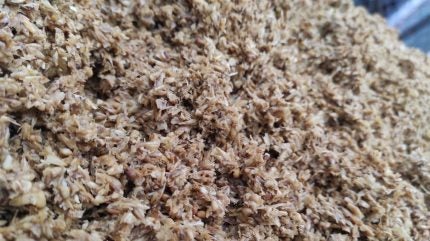
An international consortium of researchers and industry leaders is embarking on a project to transform brewers’ spent grain (BSG) into high-value bioplastics.
The POLYMEER project, funded by the Circular Bio-Based Europe Joint Undertaking HORIZON programme, aims to establish a sustainable bio-based value chain and reduce reliance on fossil-based plastics.
Bioplastics currently make up a small fraction of global plastic production and the projected growth is insufficient to meet increasing market demand.
BSG, a byproduct of the brewing process, is often used for low-value animal feed or discarded in landfills. Despite its potential as a feedstock for bioplastics, its applications are limited due to poor mechanical properties and scalability challenges.
The POLYMEER project seeks to address these limitations by developing bioplastic materials derived from BSG.
By converting wet BSG into high-added-value materials, the project aims to diversify the range of sustainable material solutions available to replace traditional plastics.
The consortium will focus on developing new bio-based polymers, copolymers and polymer blends based on BSG. These materials will be designed to meet specific property requirements for three targeted applications: mulch films for agriculture, textiles for the automotive industry, and tertiary packaging films for industrial purposes.
All products will be designed for recycling or biodegradation in specific environments.
Up to 2028, the project will optimise the conversion of BSG into bio-based building blocks and create high-performance bioplastics that can compete with conventional materials.
The consortium will assess the life cycle sustainability, cost-effectiveness and scalability of these solutions while engaging with key stakeholders to ensure market readiness and regulatory compliance.
To achieve these ambitious goals, an international consortium has been formed, including academic institutions, research centres and companies from Belgium, Croatia, Denmark, Italy, the Netherlands, Portugal and Spain.
The project is coordinated by the Università degli Studi di Perugia and has received €4.9m ($5.4m) in funding.
By transforming brewers’ waste into valuable bioplastics, the consortium aims to reduce plastic pollution, promote sustainable resource management and drive innovation in the packaging industry.



